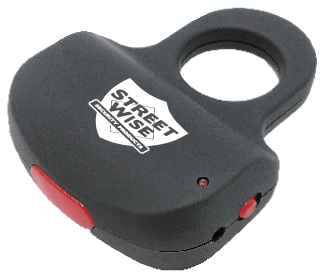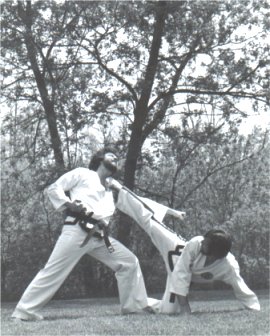
You have a variety of options when it comes time to choose a training program if you are interested in the KCPD. There are three options: Professional training, Drivers training and Recruit training. These are the main features of each program. You will find out the benefits of each program by reading on. Here are some tips to help you get the most from your training.
Recruit training
For Kansas City Police Academy recruit training, interested candidates must pass a polygraph and have a pre-employment interview. They must have a highschool diploma or GED. In addition, applicants must meet the age requirements for being a citizen of the United States and a resident of Kansas City at the time of hire. All prospective officers must be physically and mentally healthy and must pass a background investigation, medical, and psychological exam. They must complete their training before they can begin work as a sworn KCPD Officer.
The Kansas City Police Academy's 174th class is currently preparing for their field. The Missouri Department of Public Safety has certified the academy's Peace Officer Standards and Training program. They have also a background in law enforcement, and have had extensive real-life experience. The Academy recruit training requires dedication and commitment to the profession.

Professional training
The Kansas City Police Department offers professional instruction in a wide range of areas, including criminal investigation as well as patrol. The Kansas City Police Department offers many advancement opportunities, and officers start their careers on patrol. Special units such as domestic violence, sex offenses, vehicular crime, crimes against kids, and gang violence are also employed by the department. Regular trainings are offered to the public. Women may be interested in taking the Women Safety Seminar.
The Missouri Department of Public Safety has certified the academy's instructors through its Peace Officer Standards and Training program. This program helps officers acquire the required qualifications to work in law enforcement. To be academy-eligible, applicants must apply through a police agency. After being accepted, applicants who are not POST will be able to work in any police department for the duration of their Academy training.
Drivers training
During their first year at the police academy, new recruits to KCPD must complete 40 hours of driver instruction. This includes instruction in the classroom and supervision of driving on the road. PAL instructors can also give information to students about vehicle registration and how to get insurance. The academy believes strongly in driver training and hopes to see some of its student drivers join the force. How can recruits get the most out of this experience? Let's discuss some of the ways driving training at KCPD can become a positive experience.
Kansas City Police Department oversees the operation of the academy. Continuing education classes, driver's training, firearms training, and traffic safety courses are available through the academy. Non-KCPD personnel may also attend these classes. Non-KCPD personnel may be trained at the academy for a fee. Over 1,100 non KCPD members attended classes during fiscal year 2013. The academy also rents out its facilities to outside law enforcement agencies, such as the Jackson County Department of Corrections, the U.S. The Platte County Sheriff's Department, as well as the Postal Inspectors-OIG.

Leadership academy
Officers learn the skills and attributes necessary to lead in the Leadership Academy at Kansas City Police Department. Participants will learn to be a leader, communicate effectively with others, and gain invaluable insight into the dynamics of law enforcement. Participants also participate in a series practical exercises that help them to become better police officers. Police recruits also learn six common calls of service at the academy.
Arbinger and others are leading thinkers who lead the workshop at Kansas City Police Department. FOP members as well as department heads from the KCPD are among the participants. There are also some neutral participants. The workshop begins out hostile but soon becomes a welcoming environment. Participants said they had learned a lot and were excited to put it into practice in their work. Overall, the workshop was a success in improving officer morale, motivation, productivity, and overall quality of life. It also helped to improve relations with the community.
FAQ
What's the best weapon you can carry for self defense?
Sharp knives are the best weapon you can use to defend yourself. While you might not consider a knife necessary for self-defense you will find yourself in need of one if an attacker tries to harm you.
You don't need to spend $100 on a folding knife to protect your self. The job can be done with a simple pocketknife. For any emergency, you can add some extra tools.
Can I carry a stun gun legally?
Yes. You will need to apply for a permit in your state.
You will need to fill out an application and pay a fee in order to apply for a permit.
You must keep your permit visible once you have received it (like your wallet).
You'll need to apply again if you lose your permit.
How can you stay safe when you're not physically able?
If you are unable to defend yourself against an attacker, it is best to find someone who can.
You may need to ask the police for help. You may have to call the 911 emergency number. If you don't act, you may die.
Contact your local shelter for victims of domestic violence. Many shelters offer safety planning classes to teach women how to protect themselves.
What should I look out for in a self defense class?
You should consider the reputation and experience of the instructor when choosing a self defense class. Ask about their background and credentials.
Ask if there are any discounts or free trials. Many instructors offer special deals for students who are new.
Ask if they offer online classes so you can take advantage of them whenever you want.
Ask if emergency medical services are available after classes. This is especially important if you get injured during a class.
A class should offer many exercises. This gives you plenty of time to experiment with each technique before moving on.
Statistics
- Saying this, Self defense 101 would be the importance of situational awareness, which can never be replaced by the finest of martial arts, because it is this that would help you to avoid any likely attacks in the first place. (worldofselfdefense.com)
- The Rape, Abuse & Incest National Network reports that 70 percent of sexual violence cases aren't committed by random strangers in a dark alley but by people we know: friends, family, partners, co-workers, etc. (healthline.com)
- Some people walk into a gym thinking they are going to become the best by training whenever they like and not putting 100% effort in. (budodragon.com)
- Most likely, you'll get tapped out by 90% of the people in your first 3-5 months. (mmaclan.com)
External Links
How To
How to Survive an Invasion at Home
Home invasion is frightening, especially if you have children. We didn't know what it would feel like to be in the midst of home invasions when we began our home security installation journey. Here's what we've learned so far.
-
Do Not Allow Your Children to See The Attackers. Two men broke into the house while our children were sleeping upstairs. We kept them downstairs till the police arrived. Although our children weren't injured, they were traumatized enough.
-
Lock up all valuables. We keep valuables locked up in a safe in our bedroom. Even if someone is able to break into the house they won't have access.
-
Keep an eye on Burglars. We live in a neighbourhood that is notorious for burglaries. We always keep an eye out for suspicious vehicles and people.
-
Make sure you have a backup plan. Our family will be financially protected in case anything happens. If necessary, we have a plan for leaving the country.
-
Be prepared. Be prepared in case you are ever forced to defend your own life. Prepare food, water, and other supplies.
-
Call 911 first. Call 911 immediately after finding out someone is breaking into your house. It's better to call the authorities than to wait for them to break down your door.
-
Use common sense. Don't let anyone inside who doesn't belong there. You should not invite strangers to your home.
-
Get Help From Neighbors Or Other People In The Area. If you feel unsafe, contact your friends and neighbors. You can have them watch your back while calling the police.
-
Keep Calm and Do What Police Officers Tell You To. Stay calm and do exactly as instructed by officers. Avoid fleeing or resisting arrest
-
Photograph All Evidence. Photograph all evidence you find during the investigation. This includes blood samples and fingerprints.
-
File A Report With Local Law Enforcement. You can file a police report even if nobody was hurt. You may be able to prevent other crimes.
-
Contact the Insurance Company Immediately. Contact your insurance company right away. You can tell them all about what happened and they will send an adjuster out to assess the damage.
-
Remove Personal Belongings. Take your personal belongings off the premises. Take off expensive jewelry and keep it safe.
-
Take Care of Yourself. Make sure you clean up after yourself. Take out the trash and break glass and lock all doors and windows.
-
Talk about What Has Been. Don't talk about anyone's past. You never know who may try to use this information against or against you.